Expanding your business operations overseas paves the way for more growth opportunities for your business. However, it also means you must figure out long-term strategies to adopt in various departments like the supply chain to scale with ease.
For instance, if you shop from China, you need to learn more about international shipping to benefit from the most efficient cargo delivery services.
There are different shipping routes you can use to ship goods from China to Singapore. The cost and speed of transportation vary by shipping method. However, the cheapest route may not be the fastest, and you may have to pay more for the fastest routes.
For example, air freight shipping is the most costly option but rapid. It can be the best solution if you’re a last-minute shopper or have urgent deliveries. On the other hand, sea freight is the cheaper option, but it might take longer before your cargo arrives.
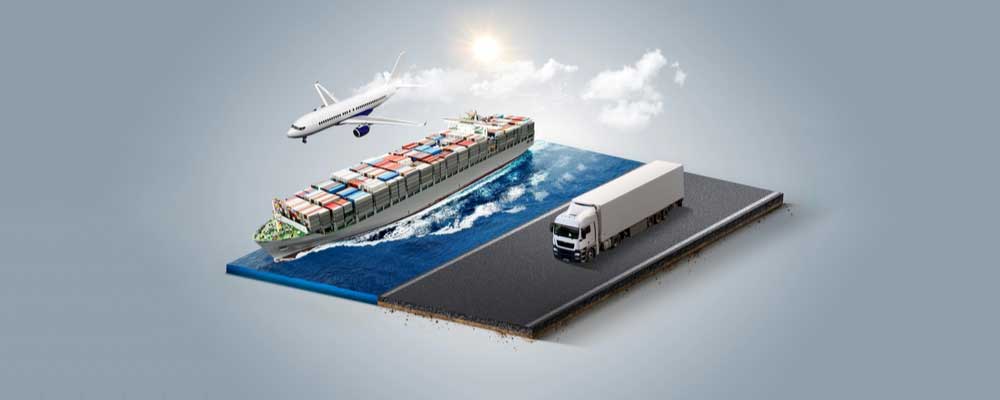
Generally, the method you choose to ship cargo mainly depends on your budget and factors such as the type of goods you’re shipping, their weight or size, and how soon you’ll require them. For instance, if you’re dealing with perishable goods, you may want to ship them using the fastest means to prevent early damage.
Also, you’d want to choose a reputable freight forwarding company like Luckystar that provides top-notch and cost-effective logistics solutions. Our freight forwarders are highly trained and very professional, so we guarantee our valued clients and partners worldwide the finest experience. Our commitment is to deliver value and provide our customers in various industries with opportunities for growth.
Air freight shipping from China to Singapore
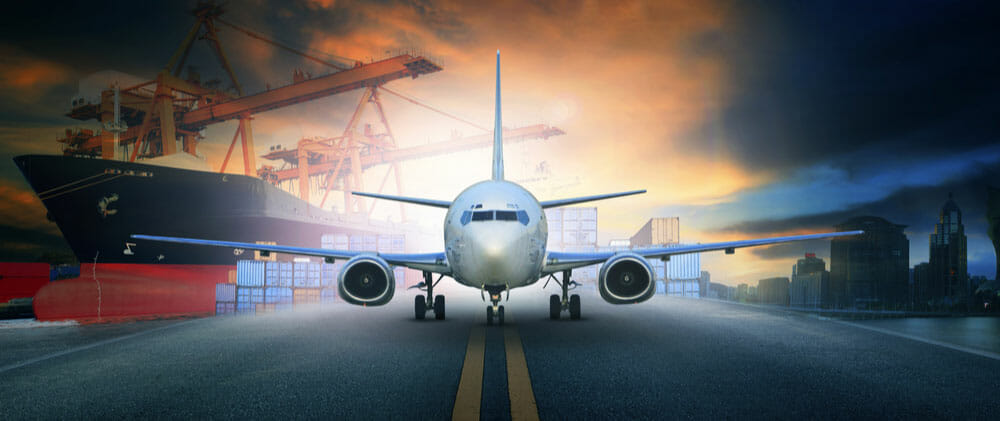
Air freight is the ideal shipping method for high-value commodities required in a shorter time. However, the cargo shouldn’t be very heavy. Though expensive, air freight transportation has more benefits than other shipping methods.
Advantages of air freight shipping
Here are some advantages of air shipping:
Speed and reliability: The biggest advantage you can get by shipping air cargo is the fastest shipping times. The arrival and departure times are the most reliable. With the shorter transit time, your perishable items will still be fresh when they arrive in Singapore.
Security: Most airports have strict safety regulations regarding cargo transportation. For instance, the air terminals and receiving areas are highly secured, reducing the possibility of theft or damage of goods. Also, there’s minimal handling of goods because they require less packaging. This reduces potential damage to your cargo.
Flexibility: If you choose air freight, you can move your cargo early, frequently, and even at the last minute to meet your fulfillment needs.
Air freight transit time from China to Singapore
Air freight shipping from China to Singapore may take one to two days. The goods can be dispatched from China airports, such as Guangzhou, Hong Kong, and Shenzhen, directly to Singapore International Airport. Even so, some of the aspects that may affect the delivery times include:
The value of the goods: Highly perishable goods are always prioritized for expedited shipping to reach the customer in good condition.
Season: Your shipment may be delayed during the peak seasons because of high shipment volumes.
Air freight shipping cost from China to Singapore
Air freight shipping costs are usually applied by airlines based on the weight of a shipment. Therefore, the number of kilograms of your cargo is multiplied by the set rate per kilogram. The air freight cost from China to Singapore may cost approximately $5 to $18 per kg.
Additionally, air freight costs are made up of other charges and surcharges like air freight charges, terminal fees, security fees, or fuel surcharges. Airlines charge terminal fees for loading and offloading, cargo handling, or parking services.
On the other hand, a security fee is imposed for the various safety measures put in place to prevent risks such as damage or theft. Depending on your type of shipment, it may cost about $50 to $200 per flight.
Air freight costs may vary for different airlines due to the different operating costs. Ideally, two airlines may charge different prices for the same route. For example, SQ Singapore Airlines and MU Eastern Cargo Airlines fly to Singapore Changi Airport. These two airlines may set different prices for shipments taking the same route.
Also, other surcharges are subject to change due to various factors such as fluctuating market conditions:
Elements that can influence your air shipping cost
The factors below may affect your air shipping cost:
Season: In peak seasons, there is increased demand resulting in higher service prices. On the other hand, during the off-peak seasons, demand decreases, so air freight forwarders reduce prices to fill the unused cargo space.
International fuel prices: Fuel price is usually fixed at a standard rate per kilogram, irrespective of the miles your cargo should be transported. And since all airlines set fuel rates based on international oil prices, the costs fluctuate regularly. When international fuel prices increase, air freight services also become costlier.
Destination: The longer the distance, the more the shipping costs. Also, prices may differ depending on the type of route offered. That is, for a direct airline freight service or a connected service.
Weight and volume of your shipment: Heavy items cost more to ship than lightweight goods. Also, you may be charged more if your cargo is lightweight but large in volume. That’s because it takes up more space than would have been used for other shipments.
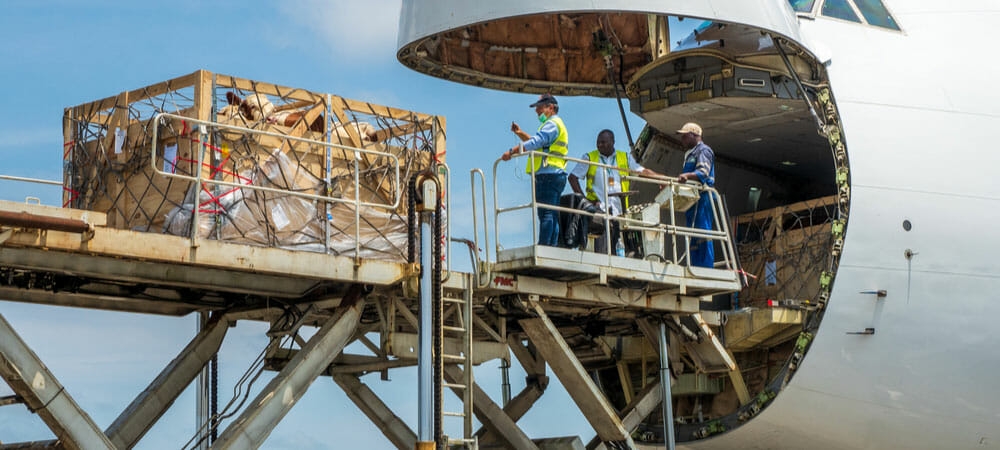
Even so, as a renowned shipping company, we aim to provide our clients with exceptional and affordable services regardless of any systemic changes.
What to pay attention to when air freight shipping from China to Singapore
After confirming the air freight transportation of your goods from China to Singapore, you should share your cargo details, such as the type of commodities and other dimensions like weight. After the freight forwarder in China confirms the travel plan, they’ll share the flight details, for instance, the departure time and other shipment information.
All goods transported must be packaged well to meet the airline’s regulations. Packaging differs depending on the type of cargo. As a reliable freight forwarder, we provide our clients with professional packaging services to save time and ensure your cargo meets the airline’s packing requirements.
For fragile goods, we add a fragile label stick on the outside of the packaging bag. This is to make sure your items arrive at your final destination in good condition. Apart from the address label on the outer packaging, we avoid adding other signs to prevent confusion.
Sea freight from China to Singapore
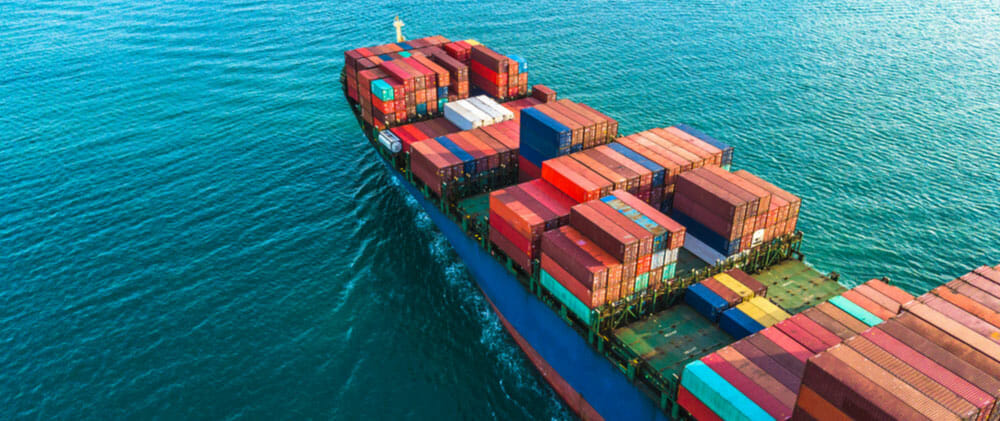
Singapore generates most of its revenue from foreign trade. Essentially, this is one of the world’s largest trading hubs and its economic partnership with big countries like China has boosted international trade. It’s China’s major export market.
In 2016, 19% of Singapore’s imports worth USD$25.2 billion were from China. In 2021, the imports to Singapore from China were valued at around USD$54.55 billion. And with the large net trade with China, the value of goods imported is expected to increase rapidly over the next few years.
Sea freight is the most popular shipping method from China to Singapore because it’s the most economical. The major seaport in Singapore is the port of Singapore. It’s one of the biggest container transshipment hubs located at the southern point of the island.
The port comprises three collective facilities that handle Singapore’s shipping. That is the harbor area off Keppel Harbor is designated for container shipping, cruise ship terminal, and offshore Jurong Island.
On the other hand, the most used shipping routes from China are through the ports of Qingdao, Shanghai, Tianjin, Ningbo, and Xiamen. Other small ports like Yantai and Dalian are also used.
Advantages of sea shipping
Below are the advantages of sea freight shipping:
Economical: Sea freight shipping costs are generally less expensive than air freight services. You can ship large volumes of goods at a considerably low price.
Also, you can reduce your sea freight shipping cost by consolidating consignments or sharing a container with another company to allow for cost-sharing.
Additionally, the shipping container can be used for further transportation by road or rail from the port of destination to the customer’s doorstep or warehouse.
Bulky cargo capability: Sea shipping from China to Singapore is an ideal option if you’re transporting bulky cargo. Sea freight shipping vessels are designed to carry heavy loads such as large vehicles, construction materials, and steel and iron products that are impractical to ship by air.
Safety: If you’re transporting delicate cargo or chemicals, you may want to consider sea shipping. Our freight forwarders are highly trained and well-versed in the handling of such cargo.
Besides, the maritime industry has regulations to ensure maximum protection of your cargo, the vessel, the transportation crew, and the environment. For instance, every container load is sealed and locked in transit to ensure extra security.
Eco-friendly: Sea shipping is the most carbon-efficient means of transportation. That’s because ships produce lower greenhouse emissions compared to other shipping methods like cargo airliners that emit a lot of carbon dioxide.
Also, there are different shipping options you can use for ocean freight. They include:
LCL from China to Singapore: LCL stands for less than container load deliveries. LCL shipping is ideal if you are shipping goods in small quantities and volumes, say 1-15 cubic meters.
If you choose this shipping solution, your goods will be packaged in a shared container with the cargo of other Singaporean importers. Also, it’s the best choice if your commodities are not urgently required and cannot be easily damaged if mixed with others.
FCL from China to Singapore: FCL stands for full container load deliveries. If you opt for this method of ocean shipping, you’ll be charged a flat rate to rent and transport your shipping container from China to Singapore.
FCL shipping is suitable if your goods occupy more than six standard pallets. Also, it’s a better choice if your items are urgently required and if they can fill at least half the carrying capacity of a standard 20ft container.
Classifications of containers for sea freight from China to Singapore
Below are the different types of containers to consider for Singapore ocean freight:
Dry good containers: Also referred to as normal containers. They are the standard containers typically used to transport dry materials. They are available in different sizes, such as 10ft, 20ft, or 40ft.
Reefer containers: A special type of dry container used to ship perishable commodities like fruits or vegetables because they have temperature-controlled chambers.
Open side containers: Open side containers have doors that can be entirely opened on the sides to facilitate quick loading and offloading.
Open-top containers: These storage containers have removable ceilings and are best for transporting tall goods.
Ventilated container: A ventilated container has openings at the bottom and top side rails for adequate ventilation.
Folding container: Also known as flat rack container. These containers have collapsible sides hence suitable for shipping a wide range of commodities.
Platform container: Platform containers have no walls or ceilings but strong floors with high freight limits. They are mostly used to transport items of odd sizes.
Tank container: These storage units are specifically used to ship liquid materials. The tanks are mostly made of anti-corrosive metal like steel to protect the items transported.
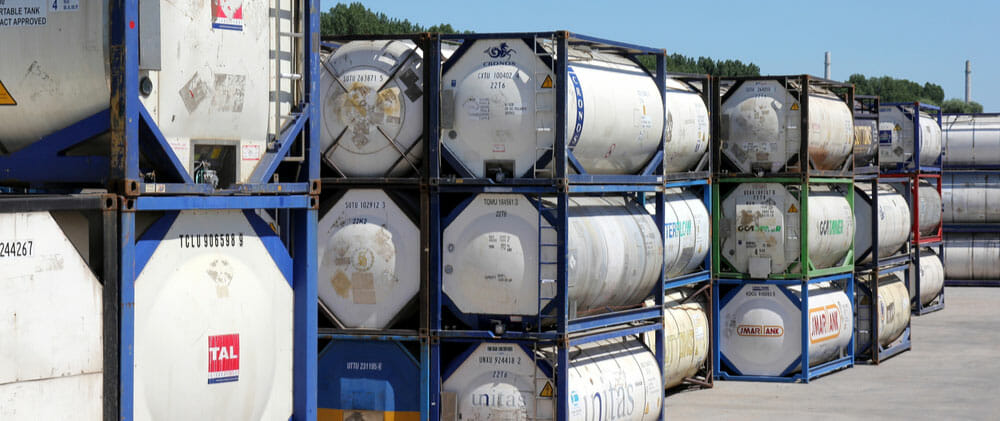
Therefore, depending on the nature of your consignment, you’d want to collaborate with the best freight forwarder, like Luckystar Logistic, to help you select a suitable container for cargo shipping.
Sea freight shipping costs from China to Singapore
Singapore shipping cost by sea depend on different factors such as the shipping carrier used, the actual or volume weight of your shipment, and the destination. Also, shipping companies charge differently for FCL and LCL deliveries.
Generally, sea freight services from China to Singapore are around USD$800-1100 for 40GP/40HQ. LCL shipping cost is approximately USD$10-30 per CBM. FCL shipping cost from China to Singapore will vary depending on the container used, the shipping route, and your guidelines.
Sea shipping time from China to Singapore
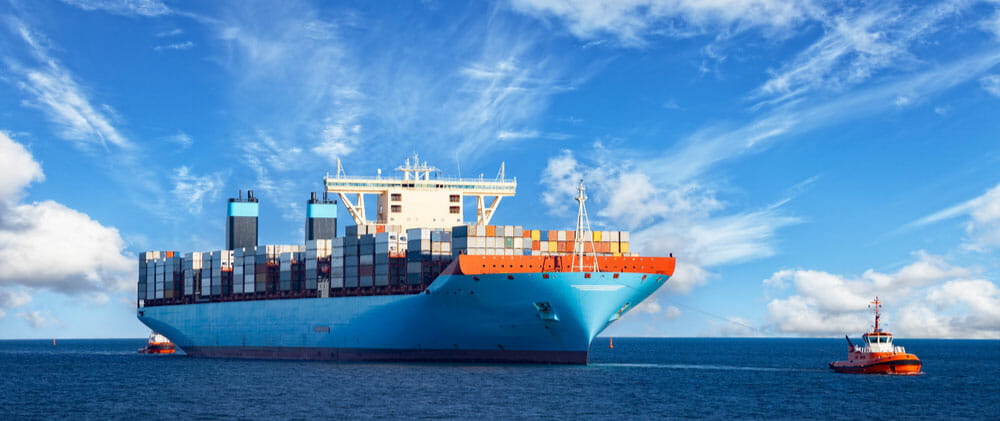
Shipping cargo from China to Singapore by sea may take approximately 4 to 7 days from port to port. However, door to door shipping may take about 5 to 8 days. The main factor that determines the transit time from China to Singapore is the distance between the port of origin and the port of destination. Longer distances result in prolonged transit times.
Therefore, if you operate a busy business that requires shorter lead times for materials, it’s best to work with a reliable freight forwarder to help you choose the fastest shipping lines.
Also, note that shipping during the holiday seasons, like Chinese New Year, may add extra transit time to the journey and may be additional charges.
The seaports in China for sea shipping
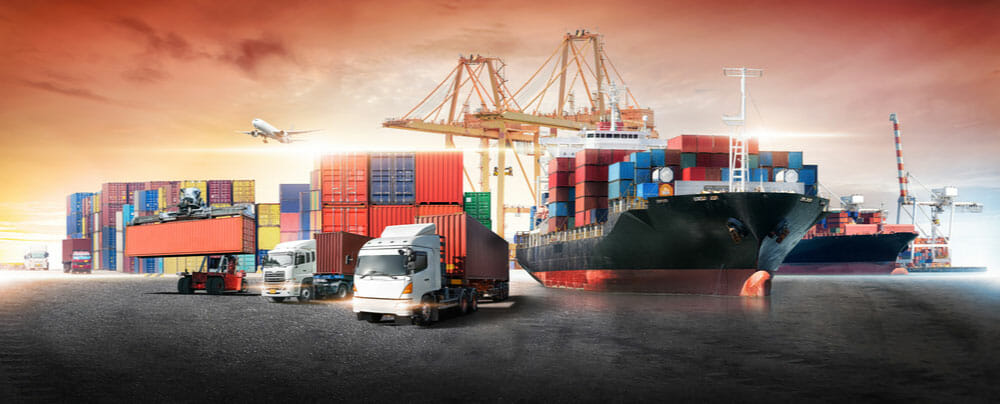
Below is a list of some of the seaports to consider for sea shipping:
Shanghai seaport
This is one of the biggest and most popular seaports worldwide. It’s situated in East China near River Yangtze. As a coastal city, its strategic location provides access to inland regions such as the lower Yangtze River Basin and Jiangsu, Anhui provinces, Zhejiang, and the North China Plain. Several railways and highways connect to the port making it more accessible.
Shenzhen seaport
Shenzhen is a vital shipping hub for Chinese seaports with reliable transportation links to various destinations, including Singapore. The port’s major operating areas include Dapeng and Yantian Port Area in the east, Dachan Bay, Nanshan, Dachan Island, Baoan Port Area, and Xiaochan Island in the west.
Qingdao seaport
The port is situated on the Yellow Sea in the Shandong province of China. It’s divided into four main port areas, including Dagang port area, Huangdong oil port reserved for oil tankers, Dongjiakou, and Qianwan port areas. Its strategic location on the Yellow Sea makes it ideal for international shipping as it connects China to Europe, the Middle East, and other Asian countries.
Guangzhou seaport
Guangzhou seaport is located in Guangdong province, China. It’s one of the busiest container ports in Asia. The main areas include Nansha Port, Huangpu Port, Inner Port, and Xinsha Port. The Nansha Port is the major container area with large-scale vessels and ocean liners.
Hong Kong seaport
Hong Kong is one of the busiest ports popular for handling large volumes of cargo. The port is made up of three main areas, including Kwai Chung Container Terminal, which is one of the biggest facilities for container handling, North Harbour and South Harbour.
Ningbo seaport
Ningbo seaport is situated in the coastal region of the East China Sea, Zhejiang province. It’s the busiest in Asia in terms of cargo handling. In 2015, it handled approximately 888.96 tons of cargo. Many business owners depend on this port to ship commodities to their clients worldwide.
Chongqing seaport
Chongqing seaport is an inland seaport located along the shores of Wujiang, Jialing, and Yangtze rivers and connects to the Shanghai seaport.
Xingang seaport
Xingang seaport is located in northeast China and is a focal point for international trade. It’s the main maritime gateway to Beijing, Tianjin, and other regions by export and import cargo.
The cheapest shipping method from China to Singapore
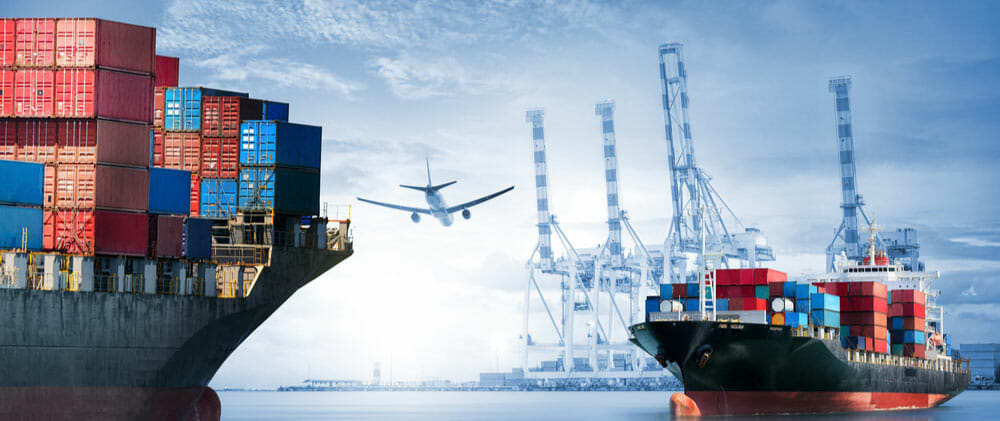
Sea freight is the cheapest shipping method from China to Singapore. Different aspects make it the most affordable mode of transportation than air shipping or rail freight. For example, there are several ports and shipping routes you can choose to use. You can reduce your shipping cost by selecting a port near your final address.
Also, sea shipping allows for the transportation of the bulky shipments. The larger the cargo, the cheaper it is to ship per unit compared to air or rail shipping. Therefore, if your business deals with heavy cargo, it’s best to take advantage of sea freight cheap shipping costs.
Import customs clearance in Singapore
Customs clearance is one of the challenging aspects of international shipping. That’s why it’s advisable to collaborate with a reliable freight forwarder to manage the entire process on your behalf so that you can focus on running other business functions.
Our freight forwarders can ensure your cargo meets all the customs office regulations that impact shipping from China hence preventing delays. When your shipment arrives at the port of Singapore, the customs clearance process starts and might take 1-2 days.
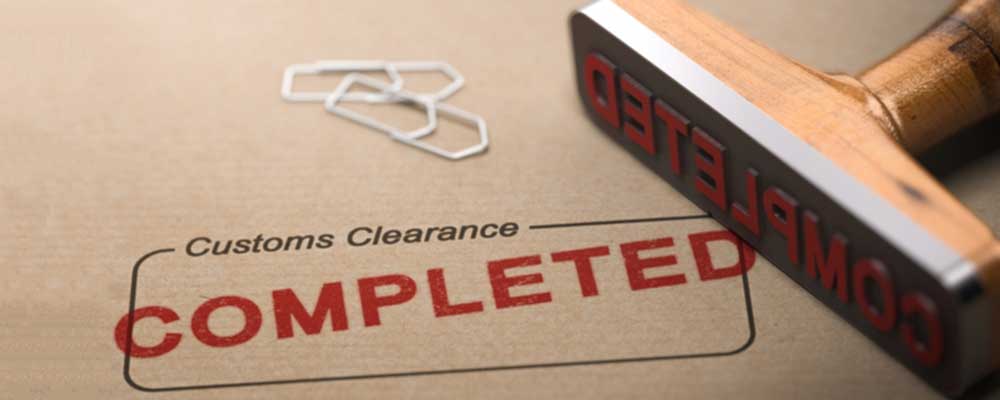
Additionally, if you’re shipping from China to Singapore, you must understand the Harmonized System (HS) codes to classify your cargo appropriately.
HS is a ten-digit number used to classify items shipped from one country to another. This product code can hasten the customs clearance process as customs officials can quickly identify and process your goods using electronic databases.
Import tax and duties in Singapore
Importing goods from China to Singapore is subject to import tax and import duties. The tax policies for imports differ from those for commodities manufactured in Singapore.
Imports are taxed at a rate of 7%, while items made in the country are not. Also, the customs authorities impose a higher import tax at a rate of 10% for specific products such as alcohol and petroleum.
Custom clearance documents required when shipping into Singapore
As the importer, you play a necessary part in the customs clearance process. You’ll be required to submit the following customs clearance documents to the customs office to fulfill the requirements of customs officials:
A Certificate of Analysis (COA)
It’s a document that provides details on the composition of a shipment. It’s essential for specific items like wines and spirits, and cosmetics.
A packing list
A list of the commodities being shipped with information such as weight, model, brand, quality, and serial numbers.
A commercial invoice
This is part of import and export documentation used by customs officials to determine applicable taxes and duties. It provides cargo information such as the description of goods, value, and importer’s details.
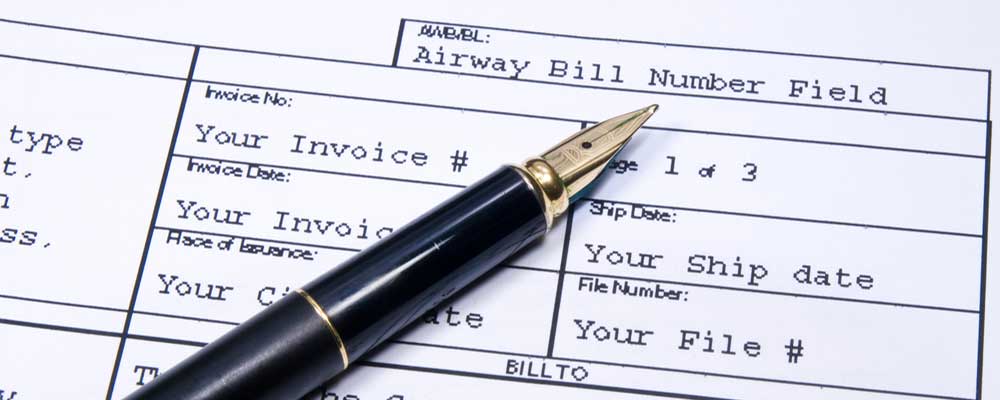
A certificate of origin
It indicates that the commodities imported were manufactured in an approved country. Therefore, it should have a “Made in (approved country)” label stamped by the relevant shipping authorities in the country of origin.
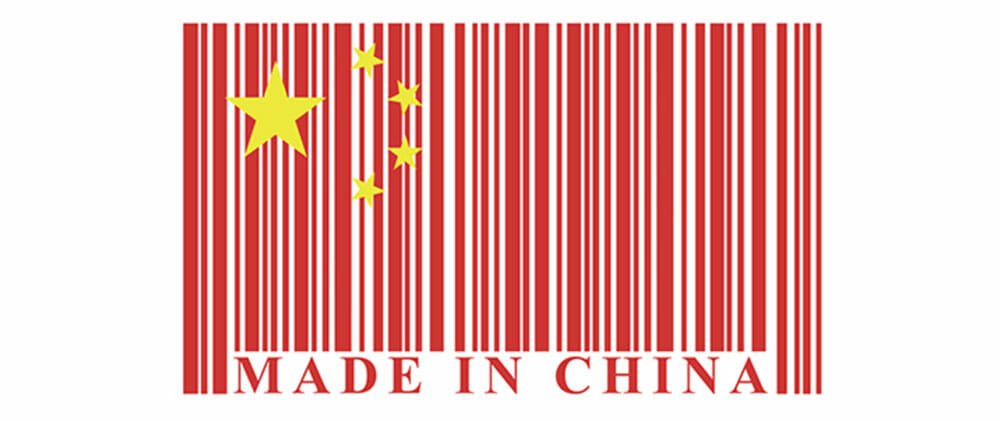
Arrival notice
It’s a message that the freight forwarder or shipping carrier sends to the shipper to inform them about the arrival date of a consignment to its final destination.
Bill of lading
This is an essential financial document in international trade that ensures exporters get payment and importers receive their shipment. The documents contain information about the type of goods transported, the quantity, and the destination. Ideally, it serves as the shipment receipt and should accompany the shipped cargo no matter the mode of transportation.
Also, depending on the nature of the goods you’re transporting, you might be required to provide additional paperwork, such as licenses or permits. At Luckystar, we relieve you of the stress of doing the import clearance yourself. We propose to make the entire process seamless and keep you informed each step of the way.
Door to door shipping service to Singapore
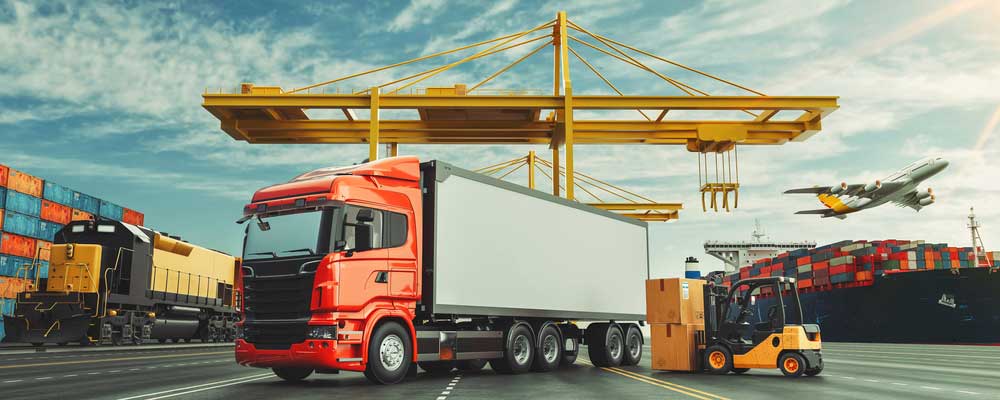
Door to door delivery is a service provided by shipping companies to assist in transporting your cargo from the port of destination to your doorstep or warehouse. Door shipping is classified into two categories: express door delivery and trucking delivery.
Trucking involves the transportation of your shipment via a truck from the port of destination to your final address.
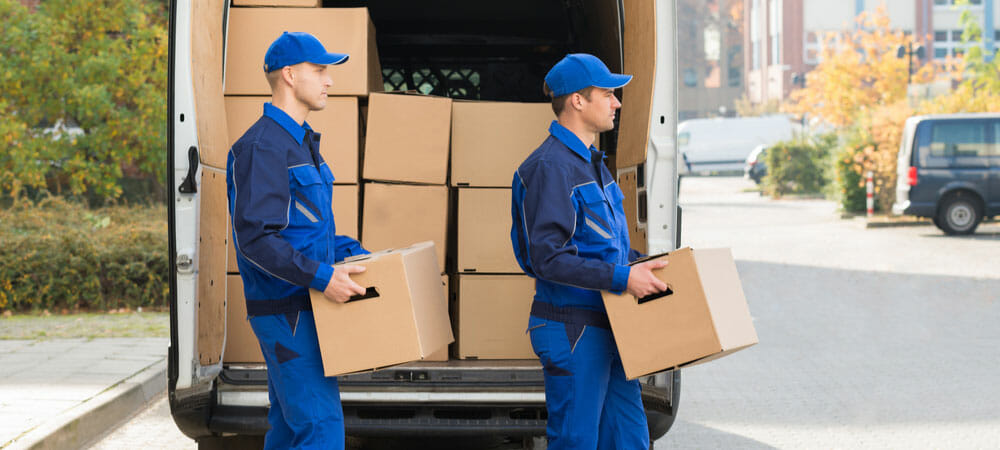
On the other hand, also known as expedited delivery, express door delivery means your goods will leave the pick-up point as soon as possible to be transported to your address via the fastest route. The trucking delivery method is less costly than express door delivery.
DDP shipping cost from China to Singapore

DDP refers to “Delivery Duty Paid.” It means the seller incurs the costs for the delivery of your cargo. This includes transportation and insurance costs. It’s the most popular method of shipping items from China to Singapore.
DDP differs from the Free on Board (FOB) shipping method, which requires the supplier to pay transportation costs until a specified destination, after which the buyer incurs the rest of the costs.
DDP transit time from China to Singapore
DDP Air freight from China to Singapore may take about 4-5 days. If you opt for DDP Road freight, it can take an average of 5-7 days by LCL shipping. On the other hand, DDP Sea freight shipping takes approximately 9-12 days by LCL shipping.
Tips for shipping seamlessly from China to Singapore
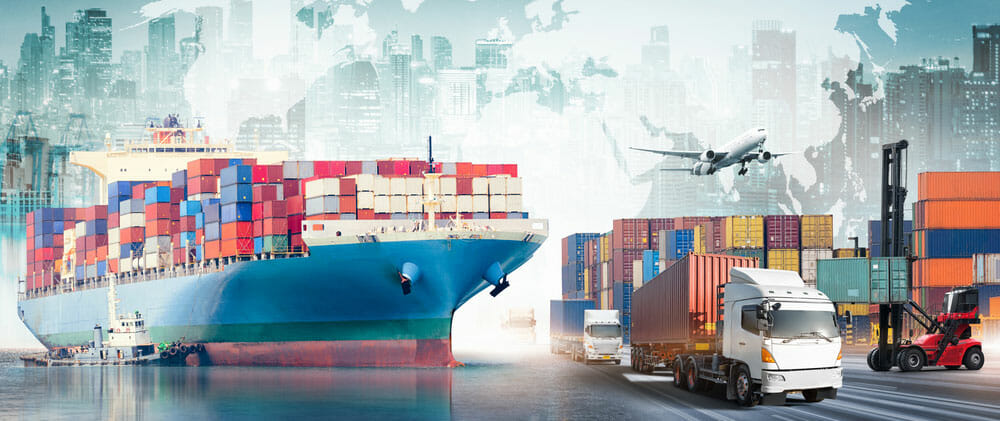
Here are some tips to consider for shipping cargo more efficiently and promptly from China to Singapore:
Employ a freight forwarding company
This way, you can leverage their expertise in international shipping and affordable freight rates.
Request for a shipping quote
Ask for a shipping quote from the shipping company you want to employ for cargo transportation. Shipping companies provide estimates based on your type of shipment, speed, and other individual requirements.
Discuss the customs clearance process
Our freight forwarders can help you with customs clearance and other arrangements you may need to facilitate effective cargo shipping.
Pay for cargo insurance
Freight insurance is essential to secure your cargo against theft or damage while in transit. And as the leading freight forwarder, we help our clients insure their shipments and make claims in case they get damaged on-route.
Cargo insurance
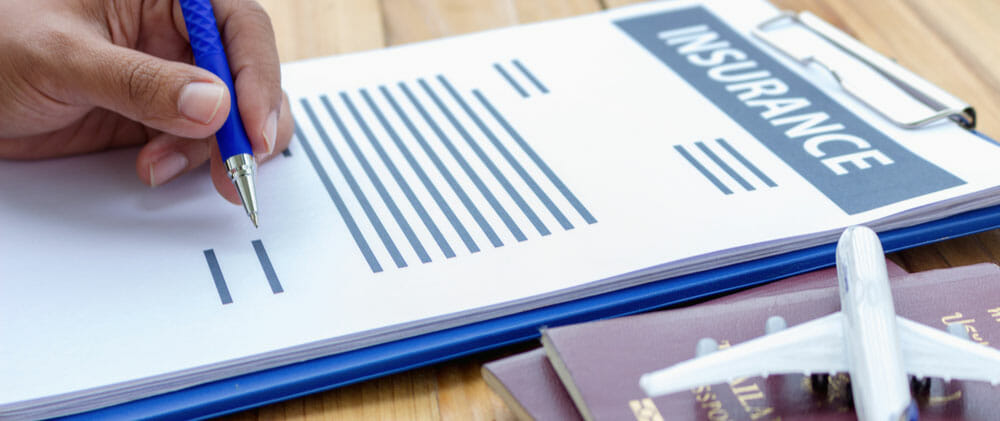
Cargo insurance safeguards your goods from damage, theft, or loss while in transit. Fortunately, at Luckystar, we help our clients insure their cargo and make claims in case of damage.
